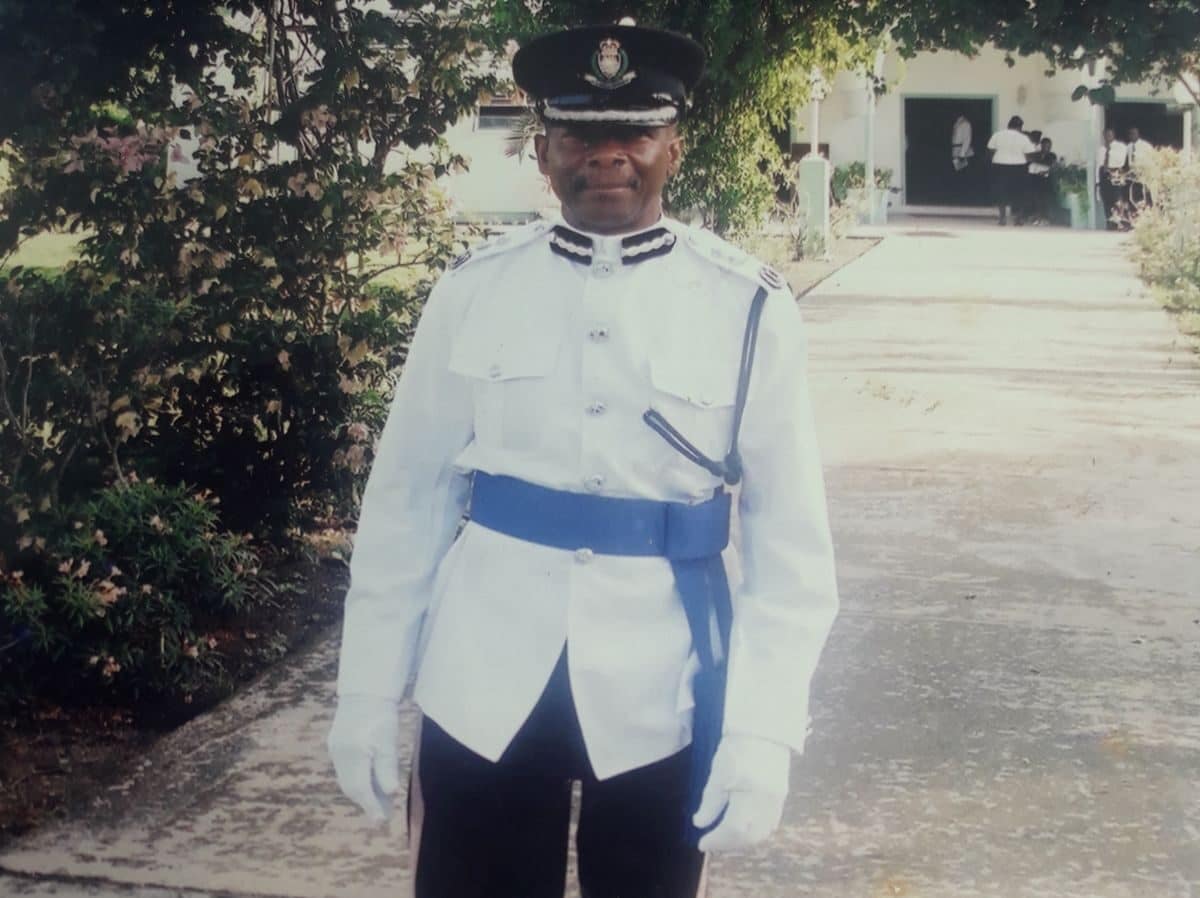

CLICK HERE TO JOIN OUR WHAT’S APP GROUP
Former Police Commissioner Rawlston Pompey is pushing back against public calls for harsher traffic fines, arguing that meaningful road safety reform depends on education, training and disciplined enforcement—not simply increasing penalties.
In a sharply worded commentary, Pompey questioned suggestions reportedly made by a senior traffic officer and said the response appears driven “more by emotions than common sense.”
Pompey stressed that the issue has “never been about stiffer penalties,” noting that police officers do not impose penalties but instead enforce existing laws.

He said the real focus should be on operational knowledge and proper chain of command within the Royal Police Force of Antigua and Barbuda.
He outlined the hierarchy—from commissioner to deputy commissioner to traffic officers—before highlighting that junior ranks such as senior sergeants, sergeants, corporals and constables should not be the ones taking the lead on major policy prescriptions.
He added that many senior ranks add only “numerical value,” while some officers of lower rank show initiative and potential and should be encouraged, formally trained and elevated through the system.
Pompey said effective road safety begins with basics: widespread public education, instructional programmes on safe driving, and community outreach through town halls, radio, television and pamphlets. He listed driving with due care, yielding, road courtesy, concentration and focus as “finer points” often overlooked.

Night-time driving presents particular risks, he said, because motorists cannot easily judge the width, distance or speed of oncoming vehicles—only their lights.
Pompey also noted that ambulances and police vehicles are typically the easiest to identify at night because of their urgency in responding to emergencies or racing to meet operational demands.
Calling talk of harsher penalties “idiotic,” Pompey said enforcement must be balanced.
Minor infractions should attract caution or warning under the “spirit of the law,” while serious offences such as reckless or dangerous driving and speeding should be prosecuted under the “letter of the law,” including the use of speed guns.
He recommended “rigid enforcement,” suspension of licences where necessary, and greater support from the magistracy—criticising what he described as guilty-plea magistrates, intimidating magistrates and “lazy magistrates,” none of whom he believes contribute to effective deterrence.
Pompey ended with a blunt directive to motorists: drive responsibly and carefully.
“WHAT THE HELL…! …DRIVE RESPONSIBLY… CAREFULLY,” he wrote.
CLICK HERE TO JOIN OUR WHAT’S APP GROUP
CLICK HERE TO JOIN OUR WHAT’S APP GROUP
CLICK HERE TO JOIN OUR WHAT’S APP GROUP
CLICK HERE TO JOIN OUR WHAT’S APP GROUP
CLICK HERE TO JOIN OUR WHAT’S APP GROUP
CLICK HERE TO JOIN OUR WHAT’S APP GROUP
CLICK HERE TO JOIN OUR WHAT’S APP GROUP
CLICK HERE TO JOIN OUR WHAT’S APP GROUP
CLICK HERE TO JOIN OUR WHAT’S APP GROUP
CLICK HERE TO JOIN OUR WHAT’S APP GROUP
CLICK HERE TO JOIN OUR WHAT’S APP GROUP
CLICK HERE TO JOIN OUR WHAT’S APP GROUP
CLICK HERE TO JOIN OUR WHAT’S APP GROUP
Advertise with the mоѕt vіѕіtеd nеwѕ ѕіtе іn Antigua!
We offer fully customizable and flexible digital marketing packages.
Contact us at [email protected]














Sooooo..they have been educated for YEARS about the speeding laws and yet…NO Compliance… Hence, MORE education is needed?…Well lard..
For me, JUST CHARGE them some BIG money!!!
I am in agreement with Former Commission Pompey that harsher penalties are not needed or effective in preventative crime, it is not effective in stopping what already occurred.
Focus should be on prevention and deterrence. Police placed at those areas that gives opportunities for reckless driving, the well known speeding areas and those known for accidents.
The speed radar guns that I shipped and are all still in Antigua is sitting in storage there, the same ones that the police headquarters had me standing in hot sun because I had a black cargo shorts on that they say doesn’t allow me to enter into a police headquarters to give them vital equipments they need to save life. So, ABLP allowing headquarters to have these idiotic rule now cost Antiguans and Barbudans their life.
The ideas I mentioned about sending officers to school to teach safe driving and current consequences of driving recklessly are also brilliant ideas that I promise will work.
Antigua just need strategic presence in communities and you will see a substantial reduction in most wrongful conduct. It must be strategic.
Additionally, I have motioned sensor outdoor/wildlife cameras that I intended to donate to farmers that can be useful in this fight also.
They are all still sitting in Antigua.
As I said yo the article about traffic cameras the same I will say to this… If the government is truly serious about cutting down crimes and accidents etc they wikk spend the money needed to fully modernize the Police Force… Get the updated systems placing all the files on a data base and have all patrol units fitted with mobile systems….get tasers body cameras the works and of course have the officers property trained to use these systems…
This man Pompey has been working hard behind the scene to pass on his knowledge and make impact on the cultural milleau in Antigua that obtains as normal, I am an electrician and I try hard to advance my field of work, and so does Pompey even though he is retire now.
Comments are closed.